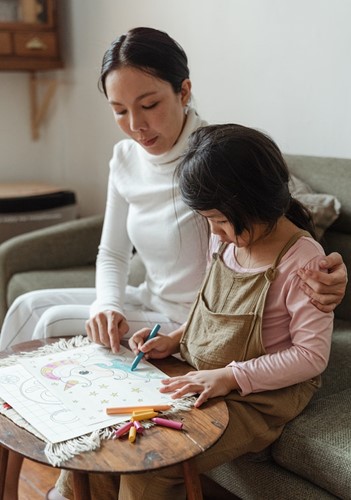Helping Children Recover From A Traumatic Event: 6 Steps To Follow
The aftermath of a traumatic event can stay with your children for a long time. A death in the family, sexual abuse, or physical abuse can completely change their outlook on life. During these times, children need support from their loved ones and, most importantly, reassurance that everything will be ok. This guide will discuss six steps that we can all follow to help our children recover from a traumatic event.

Maintain A Routine
The wake of a traumatic event can bring a lot of chaos to your child's life. Sudden change can be unsettling for them, which will make it difficult for them to overcome their fears and anxiety. To help them recover, it is important that you try and maintain a routine in your day-to-day life. Not only will this help them feel at ease, but it also reassures them that everything is going to be ok as their daily routine/life has not changed. If a routine is something that you have not established in your home, start by setting a regular time for dinner and bedtime. It can help the house to feel less chaotic. Take a look at some routine tips online to help you get started.
Listen To Them
After a traumatic event has occurred, your child will experience many mixed emotions. They may feel scared but also confused about what has happened. To understand how they are feeling, we must listen to them. Be there to lend an ear when they feel like they need to talk about the event. Avoid pressuring them to talk about it, and instead let them bring it up when they feel comfortable. If they express that they are feeling nervous/scared, acknowledge this rather than telling them to “not worry”. This can make them feel like their feelings are invalid, which you want to avoid. In these situations, your child deserves to be heard.
Gain Legal Advice
If the traumatic event that your child has gone through results in abuse claims, it is vital that you gain legal advice. If your child has been a victim of sexual abuse, they deserve justice. Enlisting the help of a sexual abuse compensation solicitor will help you understand your options for making a claim. You can find a solicitor in a matter of minutes by conducting a quick online search. These trained professionals have years of experience handling sensitive claims - and will have your child's best interests at heart. Not only are they there to lend an ear, but they can take away some of the pressure associated with making abuse claims.
Help Them Find Ways To Relax
You may notice that your child struggles to feel at ease in the aftermath of a traumatic event. It can affect them in many ways. For example, you may find that they struggle to get a good night’s sleep or feel comfortable going out in public. To help them remain calm and feel supported, you must help them find ways to relax. Breathing exercises are excellent for this. It can help them feel calm and take their mind off any negative thoughts that they may be experiencing. You can find a list of breathing exercises online, along with many other distressing activities that you can try. Actively helping them relax shows them that they are supported, which can help to put their minds at ease.
Look For Signs Of Trauma
How do you know that your child has been affected by a traumatic event? You look for the signs. There are many signs of trauma associated with children, and you can learn more about them by referring to some online resources. Some of the most common symptoms include nightmares, behavioural problems, sleep deprivation, poor concentration and difficulty forgetting the traumatic event. If you notice these signs, it is important not to feel disheartened. This should give you the motivation you need to help your child recover. Remember, they need your support, so try your best to keep it together and ensure your health is a top priority too.
Know When To Seek Help
You will find that most children's trauma symptoms will gradually fade after time. By following the steps already outlined in this guide, you will be doing everything you can to support your child, positively influencing their recovery. However, if you find that the aftermath of the traumatic event has started to interfere with your child’s life, this may be a sign that you need to seek help from a medical professional. Try to remain calm and remember that this is a vital step to help your child recover. Trained medical professionals can help your child recover and move on from the event before it dramatically affects their lives. Consult with your GP if you have any concerns